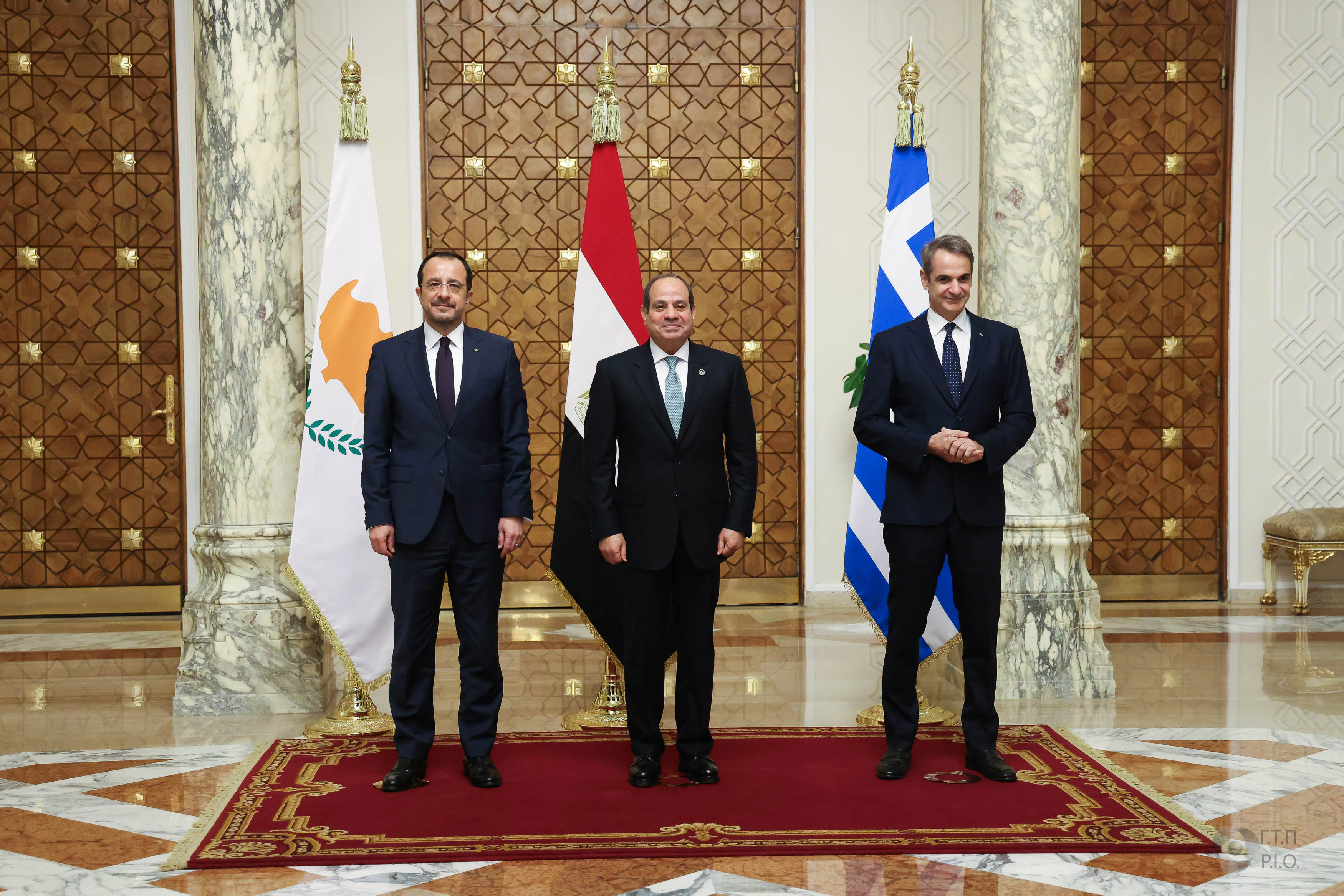Good relations between neighbouring countries are usually built through common strategic interests, business cooperation, trade, joint ventures and cultural exchanges. Governments may have to do some preparatory work, creating a framework for cooperation, but once this is done it is up to individuals and businesses of the respective countries to undertake joint ventures and engage in trade.
Trade and commerce were not the priority of the Anastasiades presidency, when it came up with the idea of trilateral alliances. These were primarily set up by the Cyprus government for energy cooperation – specifically for the exploitation of the natural gas reserves in Cyprus’ EEZ – and as a way of countering the threats and bullying tactics by Turkey. It was no coincidence that the two trilateral alliances that were established were with countries that had strained relations with Turkey. Israel featured in one trilateral with Greece and Cyprus and Egypt in the other.
These trilaterals produced a lot of words about energy cooperation but almost nothing that was tangible. The East Med pipeline, which was being discussed with Israel and would have taken natural gas from the eastern Mediterranean to Greece, despite the many declarations was non-viable. Cyprus and Israel, meanwhile, have still not resolved their dispute over the Aphrodite gas field, inconclusive negotiations dragging on for years.
Things were no different in the trilateral alliance with Egypt, which agreed an energy deal separately with Israel and another deal with Greece, Cyprus having been left out of both. There was also the establishment of the East Mediterranean Gas Forum (EMGF), a regional organisation based in Cairo, which would support members’ efforts to free their full potential of natural gas resources but turned out to be little more than a talking shop.
With such a track record, it was difficult not to view the tenth trilateral summit held in Cairo on Wednesday with a certain scepticism. Host President Abdel Fattah el-Sisi, Prime Minister Kyriakos Mitsotakis and President Nikos Christodoulides appear to have gone out of their way to illustrate that the trilateral alliance is primarily concerned with producing declarations.
That drafted by the three leaders covered everything from the Cyprus problem to the war in Gaza and from developments in Syria to the situation in Libya. The leaders also strengthened their commitment to fighting terrorism, extremism and organised crime. They would also set up a permanent trilateral secretariat in Nicosia, while they welcomed the upgrading of Egypt-EU relations.
Energy cooperation got a mention, but it related to the transition to green energy, the leaders underlining their commitment to “renewable energy sources and green technologies as basic features of our collective future.” They also “confirmed the importance of the strengthening of the cooperation for the development of the necessary infrastructure to facilitate the transfer of natural gas between them and the promotion of joint investments in the natural gas sector.”
The leaders should allow us to have our doubts about all these claims, given the track record of the trilateral alliance with regard to actions. Then again, improving relations with Egypt at leadership level through the occasional summit meeting and the issuing of high-sounding declarations of little practical import is a positive form of diplomacy.






Click here to change your cookie preferences